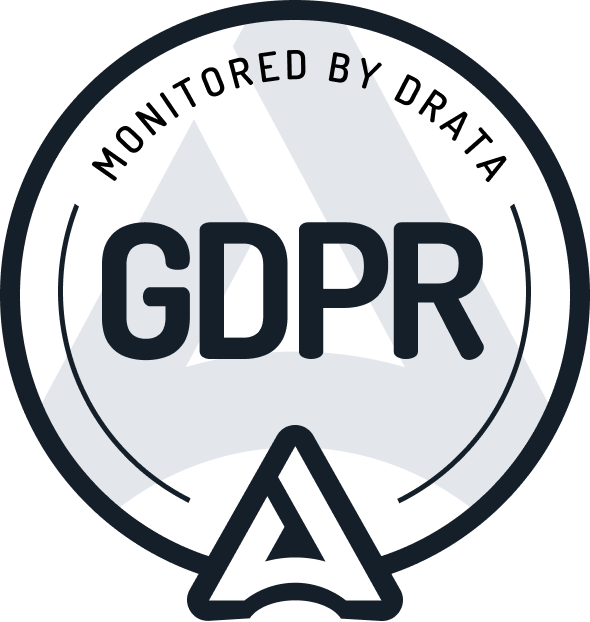
How to get talks? Growing communities through your presence.
Get notified when customers mention you online - with Crowdlens
Did you ever sit through a conference talk and told to yourself, "Hey, I could do that as well...!"? There are multiple reasons why you should become a public speaker: increasing your brand presence, bringing awareness to yourself, or maybe just meeting people with similar interests to share your expertise and passion with.
Other than that, it can be a great way of building or growing your community: by curating smaller discussion groups within the event, updating your community, and connecting on social media platforms with people. Don't you know where to start? No problem, we created this guide to help you out with that.
Build a personal brand
Event organizers are more likely to invite you to an event when they know who you are. It gives them a level of comfort, knowing that you will make a valuable contribution. If you want to build a solid and positive reputation for yourself, it helps if you have a certain level of expertise within your industry or are, for example, a published author.
Go out there and socialize
Use your network to get an invitation to an event. You probably know people that can help you get on the speaking list either on their events or an event where they are actively helping out. Don't be shy to reach out to them. If you are not aware of any connections, you can increase your network size by attending different conferences as a guest and actively approaching other attendees or speakers. If you don't plan on going to any events soon, you could also reach out to people through LinkedIn or Twitter.
Increase web presence
Since we're talking about communication and improving your network size, a way of doing this could also be by publishing your own blog, newsletter, or posting content on social media to grow your follower size. You don't have to be "super famous" to speak at an event, but it helps if you're at least visible on social media.

Share content, tweet, or write reviews on your blog about the conferences you attended. Find the individual organizers of the event, follow and tag them in your posts. Being known as a big supporter of a conference can catch organizers’ attention, and they might even come up to you and ask you to be a part of it in the future. Social media acts as your WOM (Word of mouth). Use it to increase awareness about yourself and the event.
Choose the right events
It's not only about how you get picked to talk at a conference but also which conference to choose. The variety of events, especially in the Tech scene, can make it very difficult to select the right one. The conference has to suit your speech, brand, and community - this creates an immense difference if you will get picked or not. So keep these questions in mind:
- What is the topic of the event?
- How well is it organized?
- Why do I want to speak at the conference?
- Does my topic fit the event (work or interest-wise)?
- How will I get to the conference?
Also think of personal preferences, on what kind of event you want to speak, for example:
- Caring about attendees and speakers
- Inclusiveness and diversity in the Line-up
- Overall good atmosphere
If you are unsure where to find events, you can look on Twitter, listen to recommendations, or approach organizers. Local or regional events can also be a great idea. You don't have to worry about covering your finances to get there, it's an excellent opportunity to practice your speaking skills, and as a bonus, most of the time, the speeches are being recorded. However, headliner events bring the highest value and will be most watched on YouTube.
Where to find the right event? Have a look at these websites:
Develop a topic
It is essential to keep in mind to not give any talks, which can simply be explained in a short blog post. Furthermore, you could follow the following questions:
- What do you care about? Prepare a list of topics, which are of interest to you.
- What have you done in the past? Think of your own experiences from both your professional and personal life that you might want to share.
- What are you personally interested in learning more about? If there is any topic you want to learn more about, include that as well.
You can discuss your ideas with your friends, colleagues, people on social media (Twitter is a great platform for this), or even with the event's organizers. Find a unique angle and combine different topics. We know that is difficult, but people get bored hearing the same Nonsense repeatedly, which is not why they attend an event.
Submit “Call for Proposals”
Before you even get the chance of getting rejected, you probably have to submit a call for proposals (CFP). It is a short description of the topic you want to talk about, which you have to hand in months in advance. Writing a good proposal is complex. Start writing ahead of time, don't drift off-topic, focus on the main aspects and keep your target audience in mind. So, take a closer look at our CFP guideline to make sure your submission gets the eyeballs it needs:
1. The headline, a good and catchy title can make a difference
Think of your title as the enticing hook. Grab the event’s organizer’s attention by making your title stand out from the rest. A formula that works well: "funny name: literal description of the talk's contents". A real-world example of this formula is "Hacking Smart Safes: On the "Brink" of a Robbery" (from Bishop Fox).
2. The abstract, make it meaningful
Sell your talk to the event organizers. You want to convince them to let you talk at their conference. Write a short abstract, about 2-3 paragraphs long:
- Introduction: What is your topic about, what makes it unique, and what is the main problem you are trying to address?
- Body: Get more into details, explain how you would solve the problem. What is the new angle about this approach and include personal, professional experiences? How does your audience benefit from this, and what can they take away from it?
- Conclusion: Include a Call to action and leave the reader hanging wanting for more.
3. The freeform area, talk about your topic
It is the most detailed part of your CFP, where you can describe your topic in depth. It gives you a chance to win over the reviewer by providing insights into why you should be presenting in their conference talk and how you are presenting the information. It ensures reviewers that you have something more to talk about than just the slides.
Here are some different examples of great CFP's:
- Big Data at the Intersection of Typed FP and Category Theory
- Migrations: the only scalable approach to technical debt
- Principles of Awesome APIs and How to Build Them
Stay persistent
Be prepared to receive a lot of "Thank you for your interest in speaking at this event, unfortunately.." kind of e-mails in the beginning. Or no feedback at all. Submitting proposals for different events increases your chance of getting accepted. You might try out various topics or target groups.
What if I am still not selected?
- Talk topic: Your talk topic might be already covered by someone else or doesn't fit the audience.
- Talk proposal: It is not clear from your proposal what you will talk about and who it is for.
- Biases: Organizers perceive you as not reliable or trustworthy enough to speak at their event.
- Line up: You might just not be the right fit for the Line-up.
- Low chances: There are not a lot of slots available, and often organizers have lots of speakers to choose from.
We know the feeling of rejection is hard, don't let it discourage you. Persistence will pay off.
Improve public speaking skills
Being known as a great speaker will make it easier for you to get invited to events. If you have already been compared to being the next Steve Jobs, great, go ahead, grab a microphone, and jump on that stage. We are going to take a wild guess that it is not the case. Here are some practices that you should follow to improve your style of speaking:
- Practice. Practice. Practice: Practicing your speeches in advance will boost your confidence when you are on stage. You can also present in front of family or friends, who help you to figure what works and what doesn't.
- Know your speech by heart: Memorize your speech to focus on the audience and not your notes.
- Include the audience: Be interactive, encourage your audience to participate, use polls (hands-up) or ask questions.
- Adapt your flow: You don't want your audience to fall asleep or drift off right away, make use of pauses and talk at the right place.
- Take a deep breath: It can be nerve-wracking to speak in front of a large audience. Just remember you are not the only one who is nervous. Take a deep breath and focus on the feeling you will have after presenting.
Show me the money
Sorry to burst your bubble here a bit, but most public speakers don't get paid (a lot) for their appearance. If you are not a well-known public figure, you won't get much or anything out of it, especially if you are talking at Tech conferences. When you start speaking at public events, you will pay for most of it out of your pocket. Although, the event organizers might cover your general expenses: travel, lodging or food, and a possible small honorarium. In general, if you planned on going to an event anyway, being a speaker there gives you at least a free entrance ticket, and as a bonus, you get to wear a fancy speakers badge.

Final words - Providing value is key to your success.
Event organizers want to make sure the person they invite has something original to say and is a good match for the audience there. People might even just come to hear them speak. Don’t waste your time submitting proposals for events that don’t fit the topic track. Now that you know how to get invited to speak at an event it is about time to find some CFP’s and submit your requests. Good Luck!
Get insights to your inbox.
Once per month. No spam.


.png)





